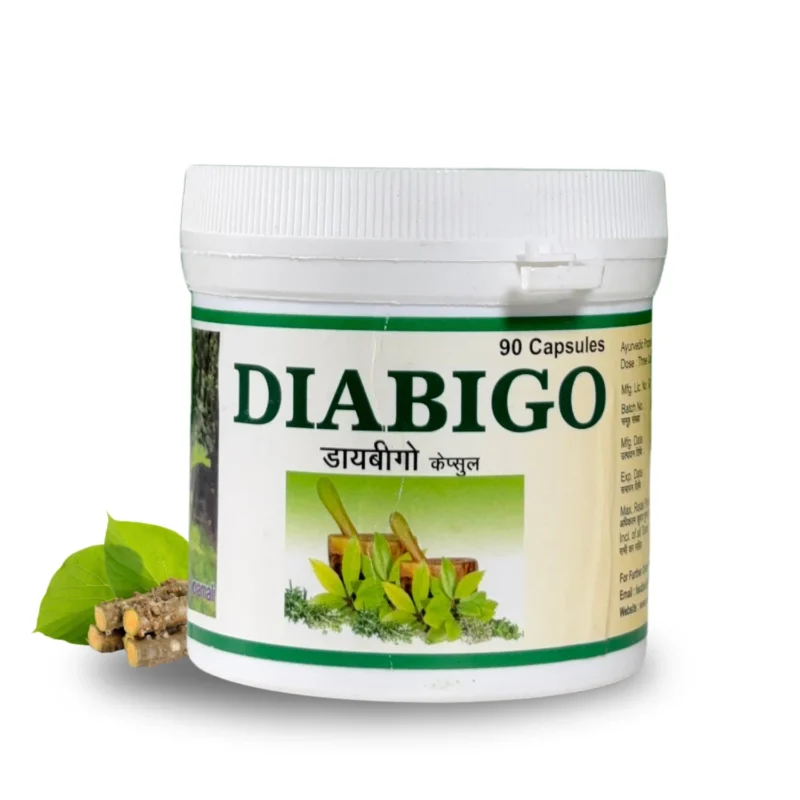HbA1c Test for Diabetes: Importance, Normal Range, Target Levels & How to Interpret Results

Managing diabetes effectively starts with understanding your blood sugar levels. One of the most reliable ways to track long-term glucose control is through the HbA1c test, also called A1C, glycated hemoglobin, or glycosylated hemoglobin. This test provides insights into your average blood sugar over the last 8–12 weeks, making it more informative than daily glucose checks.
In this Article, we’ll cover everything you need to know about the HbA1c test, including its importance, normal range in India, best time for testing, and natural ways to lower HbA1c.
What is an HbA1c Test?
HbA1c, or glycated hemoglobin, is a form of hemoglobin bound to glucose. The HbA1c test checks how much sugar is attached to the hemoglobin in your red blood cells. When you eat, carbohydrates turn into glucose, which travels through your blood to provide energy to your body. Insulin, a hormone made by the pancreas, helps move this glucose into your cells. In diabetes, your body either doesn’t make enough insulin or the cells don’t respond properly, so glucose stays in the blood.
Over time, this extra glucose attaches to hemoglobin, forming glycated hemoglobin. Because red blood cells live for about 12 Weeks, the HbA1c test shows your average blood sugar over the last 8–12 weeks, giving a clear picture of long-term blood sugar control.
- Why it matters: High HbA1c levels indicate poor blood sugar management and can increase the risk of serious complications like heart disease, kidney problems, neuropathy, and retinopathy.
- Units: HbA1c is expressed as a percentage (%), where a higher value reflects higher average blood sugar.
Best Time for HbA1c Test
- HbA1c can be taken any time of day, unlike fasting glucose tests.
- However, for comprehensive analysis, some doctors recommend combining it with a fasting insulin test or empty stomach blood sugar test to get more insights into insulin resistance and glucose fluctuations.
Recommended frequency:
- Every 3 months for people with diabetes or high blood sugar
- Every 6 months for those with prediabetes or stable glucose levels
- Normal Individuals with Risk Factors: Annually or as recommended.
How Does the HbA1c Test Work?
The HbA1c test is simple, quick, and does not require fasting unless combined with other tests like a fasting insulin test.
During the test:
- A healthcare professional draws a small blood sample from your arm.
- The sample is analyzed to determine the percentage of hemoglobin that is glycated (bound to glucose).
- Results are usually available within a few hours to a couple of days.
How to Understand Your HbA1c Results
Understanding your HbA1c results is key to managing your blood sugar levels effectively. Here’s a general guideline:
| HbA1c Level | Interpretation |
| Below 5.7% | Normal |
| 5.7% – 6.4% | Prediabetes |
| 6.5% and above | Diabetes |
HbA1c Normal Range in India
In India, the normal HbA1c range for adults is considered 4% to 5.6%. However, this may vary slightly depending on age, health conditions, and lab standards.
What is Normal HbA1c by Age
- Below 40 years: 4% – 5.6%
- 40–59 years: 4.5% – 5.8%
- 60+ years: 4.6% – 6.0%
Monitoring your HbA1c levels regularly can help prevent diabetes-related complications, including kidney disease, neuropathy, and cardiovascular issues.
Lowering HbA1c Naturally: Holistic Tips for Diabetes Management
1. Balanced Diet
Focus on foods that release sugar slowly into your blood:
Fiber-rich foods: Vegetables, fruits, beans, and whole grains help keep your blood sugar stable.
Avoid refined carbs and sugary items: Limit sweets, soft drinks, white bread, and processed foods. These can spike your blood sugar quickly.
Include natural blood sugar helpers: Herbs and vegetables like turmeric, bitter gourd, and fenugreek are known to help regulate blood sugar naturally.
2. Regular Physical Activity
Exercise helps your body use insulin more effectively. Aim for at least 30 minutes of moderate activity every day, such as:
Brisk walking
Yoga or stretching exercises
Cycling or light jogging
Even simple daily activities like taking the stairs, gardening, or dancing can make a difference.
3. Manage Stress
Chronic stress increases the hormone cortisol, which can raise blood sugar levels. To reduce stress:
Practice meditation or mindfulness
Try deep breathing exercises
Take short breaks during work or spend time on hobbies
Lower stress not only helps your blood sugar but also improves overall health and mood.
4. Adequate Sleep
Sleeping well is important for keeping your blood sugar balanced. Aim for 7–8 hours of quality sleep each night. Poor sleep can affect how your body responds to insulin, making it harder to control blood sugar.
Tips for better sleep: Keep a consistent bedtime, avoid screens before sleep, and make your bedroom dark and quiet.
5. Ayurvedic Support
Unicare Remedies offers Dia Vera, ayurvedic medicine for sugar, to help maintain healthy glucose levels and support long-term wellness.
It works alongside a healthy lifestyle to:
Help regulate blood sugar naturally
Support digestion and metabolism
Promote overall wellbeing
Please follow the link to know more benefits about Unicare’s Dia Vera
Useful Tools: HbA1c Calculators and Conversion Tools
HbA1c Calculator: Helps you estimate your average blood sugar based on your HbA1c percentage.
HbA1c Conversion Calculator: Converts HbA1c into estimated average glucose (eAG), giving a clearer picture of your daily blood sugar levels.
Using these tools regularly helps you track progress, understand your blood sugar trends, and set realistic goals for better diabetes management.
Related Products
Dia Vera: Pack of 3 Ayurvedic Medicine for Diabetes – Buy Pack of 3
Diabigo: Ayurvedic Sugar Tablets for Diabetic Patients
Meharogya Tablets: Best Ayurvedic Medicine for Sugar Control in India
Frequently Asked Questions
Yes, HbA1c does not require fasting, making it convenient for regular monitoring.
Every 3 months for diabetics and every 6 months for prediabetics or healthy adults.
Absolutely. A combination of balanced diet, exercise, stress management, and herbal support can significantly improve HbA1c levels.
You can use an HbA1c calculator or conversion chart to estimate your average glucose levels in mg/dL or mmol/L.














